Important Healthy
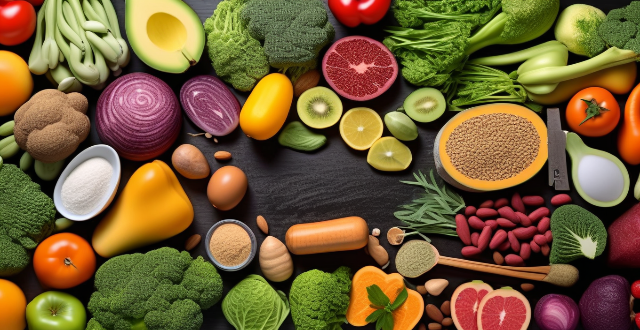
What are the key components of a healthy breakfast ?
A healthy breakfast should include a variety of nutrients to provide energy and support overall health. The key components are whole grains, protein, fruits and vegetables, healthy fats, and dairy or non-dairy alternatives. Whole grains provide complex carbohydrates, fiber, vitamins, and minerals. Protein is important for building and repairing tissues in the body. Fruits and vegetables provide essential vitamins, minerals, antioxidants, and fiber. Healthy fats are important for brain function and hormone regulation. Dairy products or non-dairy alternatives provide calcium, vitamin D, and other important nutrients. Simple combinations like oatmeal with nuts and fruit, a veggie omelette with whole wheat toast, or Greek yogurt with berries and granola can provide all the key components of a balanced breakfast.

What role does hydration play in maintaining healthy skin ?
Hydration plays a crucial role in maintaining healthy skin by moisturizing the skin, regulating body temperature, delivering nutrients to the skin, aiding digestion and detoxification, and boosting immunity. Drinking plenty of water and using moisturizers containing ingredients like hyaluronic acid, glycerin, or ceramides can help keep the skin hydrated and healthy. Proper hydration also supports numerous bodily functions that contribute to overall skin health.

How can I maintain a clean and healthy living environment at home ?
Maintaining a clean and healthy living environment is crucial for family well-being. Tips include regular cleaning, proper ventilation, minimizing clutter, pest control, healthy eating habits, personal hygiene, waste management, and water conservation. These practices promote physical health, mental well-being, and overall happiness for the family.
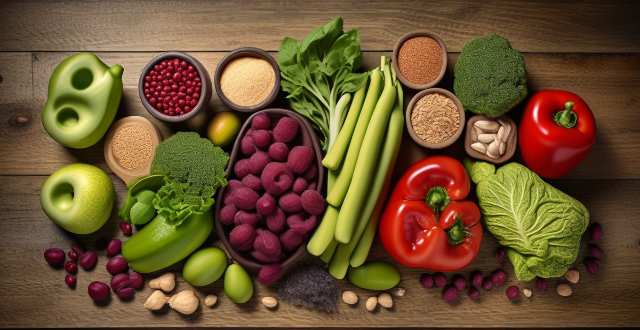
Can eating a healthy diet help with weight loss ?
Eating a healthy diet is crucial for weight loss and overall health. A balanced meal plan can increase satiety, improve nutrient intake, reduce cravings, and enhance digestion. To create a healthy meal plan, focus on whole foods, control portion sizes, choose healthy fats, stay hydrated, and plan ahead. By following these tips, you can achieve your weight loss goals while nourishing your body with essential nutrients.
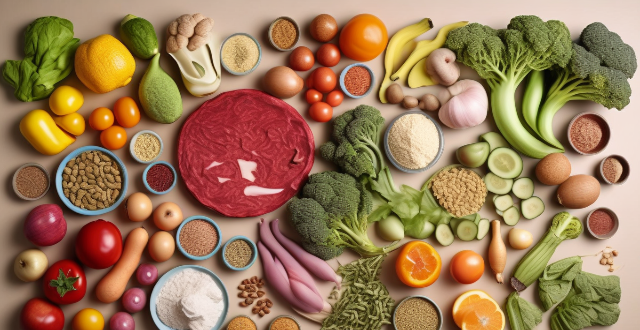
How can a healthy diet improve women's reproductive health ?
A healthy diet is crucial for women's reproductive health, affecting fertility, pregnancy, and menstrual health. Essential nutrients like folic acid and iron support conception and hormone regulation. Calcium, vitamin D, and magnesium can reduce PMS symptoms, while iron-rich and antioxidant-rich foods improve period health. During pregnancy, nutrients like folic acid and iodine are crucial for fetal development, and fiber and hydration maintain maternal health. A balanced diet can also prevent gynecological issues like fibroids and ovarian cysts. Additionally, weight management and mental health through a healthy diet promote overall well-being. Consulting healthcare professionals for personalized dietary advice is recommended.

How can women maintain a healthy weight through proper nutrition ?
Maintaining a healthy weight is crucial for overall well-being, and proper nutrition plays a vital role in achieving and maintaining it. Women can maintain a healthy weight through proper nutrition by following these tips: 1. Eat a balanced diet consisting of whole grains, fruits, vegetables, lean proteins, and healthy fats. 2. Control portion sizes to prevent overeating. 3. Eat regularly throughout the day to maintain consistent blood sugar levels and prevent overeating. 4. Drink plenty of water to stay hydrated and prevent overeating due to hunger pangs caused by dehydration. 5. Practice mindful eating by being present while you eat and paying attention to your hunger cues rather than relying on external factors like TV or social media to determine when you're full.
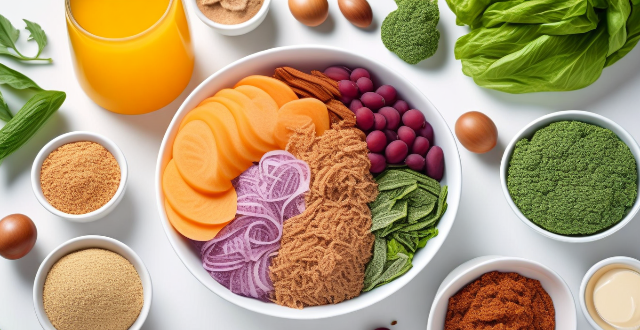
Is drinking smoothies a part of a healthy diet ?
Drinking smoothies can be a part of a healthy diet, but it depends on the ingredients used and how often you consume them. Smoothies can be nutrient-dense, convenient, and customizable, but they can also be high in calories and sugar if not made properly. To make a healthy smoothie, use whole foods, limit added sugars, add protein, balance flavors, and practice portion control.

How can I make a quick and healthy breakfast in the morning ?
The text provides tips on how to make a quick and healthy breakfast, emphasizing the importance of planning ahead, keeping it simple, using convenience foods wisely, not forgetting protein, and drinking plenty of water. It also offers examples of quick and healthy breakfast options such as overnight oats, Greek yogurt with berries, whole grain toast with avocado, egg, and tomato, and smoothie bowls with frozen fruit, spinach, and almond milk. The text suggests incorporating protein into breakfast by adding eggs, Greek yogurt, cottage cheese, nuts, or seeds to the meal. It also recommends staying hydrated by drinking a glass of water before breakfast and incorporating water-rich fruits like melon or cucumber into the meal.

What are some healthy dinner recipes for weight loss ?
The text provides a list of eight healthy dinner recipes that can aid in weight loss. These recipes include grilled chicken with steamed vegetables, quinoa salad with roasted veggies, salmon with asparagus, lentil soup, turkey chili, stuffed bell peppers, cauliflower rice stir fry, and zucchini noodles with pesto sauce. The text emphasizes the importance of eating a balanced meal before bedtime to maintain a healthy weight and ensure the body gets necessary nutrients for optimal functioning.

What are the best practices for sports nutrition in managing a healthy lifestyle ?
Sports nutrition is key to managing a healthy lifestyle. Best practices include staying hydrated, eating a balanced diet with carbohydrates and protein, choosing healthy fats, timing meals around workouts, using supplements cautiously, and prioritizing recovery through rest and proper post-workout nutrition. Consulting with a registered dietitian or healthcare professional can provide personalized advice.

Are there any healthy French dessert options ?
The article discusses the various healthy options for French desserts. It mentions fruit-based desserts like Tarte Tatin and Clafoutis, which use fresh fruits as the main ingredient, providing natural sweetness and fiber. It also suggests using whole wheat flour or almond flour to make these desserts healthier. The article further introduces nut-based desserts such as flourless chocolate cake and walnut and almond cake, which are low in carbohydrates and high in healthy fats and protein. Finally, it concludes that there are many healthy French dessert options available that allow you to indulge in something sweet without compromising your health goals.

What advice would you give to young women starting their careers on how to maintain a healthy work-life balance ?
Advice for Young Women on Maintaining a Healthy Work-Life Balance Starting a career can be an exciting and challenging time for young women. It's important to establish healthy habits early on to maintain a balance between work and personal life. Here are some tips to help you achieve that balance: - Prioritize Your Time - Take Care of Yourself - Develop Healthy Habits - Embrace Self-Care Remember, maintaining a healthy work-life balance is essential for long-term success and happiness. By implementing these strategies, you can create a fulfilling career while still having time for the things that matter most in your life.
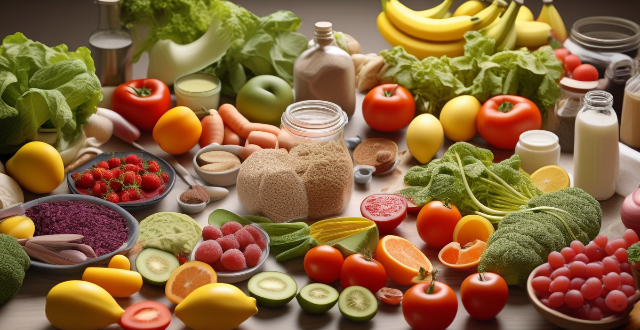
How important is meal planning for maintaining a healthy diet ?
Meal planning is crucial for maintaining a healthy diet, as it allows for improved nutritional intake, time management, cost savings, and stress reduction. To implement meal planning effectively, set realistic goals, create a weekly plan, involve family members, keep it simple, and use technology to simplify the process. By following these tips, you can achieve a healthier lifestyle through effective meal planning.

What are some must-have kitchen gadgets for healthy eating ?
In pursuit of healthy eating, having the right kitchen gadgets can significantly improve the preparation and enjoyment of nutritious meals. This article lists essential tools such as a high-quality chef's knife for efficient chopping, a food processor for versatile cooking tasks, a steamer basket for nutrient-rich cooking, and other devices like slow cookers, spiralizers, and immersion blenders that facilitate healthy meal preparation. Each device is discussed in terms of its benefits, uses, and why it is considered essential for healthy cooking. By incorporating these tools into your kitchen setup, you can make preparing healthy meals easier and more enjoyable, setting the foundation for a lifetime of healthy eating habits.

In what ways can workplaces promote healthy lifestyle habits among their employees ?
This article explores various ways in which workplaces can encourage healthy lifestyle habits among their employees, including physical activity, healthy eating, mental well-being, and breaks/time off. By implementing strategies such as on-site fitness facilities, flexible working hours, healthy snack options, counseling services, and celebrating milestones, companies can improve productivity, reduce absenteeism, and enhance employee satisfaction. The article concludes that employers who invest in their employees' health and wellness are likely to see long-term benefits for both the individual and the organization as a whole.

How does climate change affect children's rights to a healthy environment ?
This article explores the impact of climate change on children's right to a healthy environment, highlighting various health, nutritional, psychological, and educational implications. It emphasizes that addressing climate change is crucial for safeguarding children's rights and future well-being.

How can online platforms be utilized to promote physical activity and healthy lifestyles ?
In the digital age, online platforms have become aIn the digital age, online platforms have become a disseminating information and online platforms have become a pivotal tool for disseminating information and fostering community engagement. These platforms can be effectively utilized to encourage physical activity and promote healthy lifestyles. Here's how: Educational Content Creation: Health and Fitness Blogs share informative articles about the benefits of regular exercise, nutritional guidance, and tips for maintaining a healthy lifestyle. Interactive Q&A Sections encourage readers to ask questions and engage in discussions about health-related topics. Video Tutorials and Workouts post home exercise routines that can be done at home without equipment. Live-Streamed Classes host live workout sessions where participants can join in real time and get motivated by others. Online Challenges and Competitions: Step Challenges use apps that track steps and create challenges for users to reach a certain step count within a given period. Community Leaderboards set up leaderboards to showcase top performers and encourage friendly competition. Healthy Eating Contests challenge participants to share photos of their healthy meals with a dedicated hashtag. Weekly Themes introduce weekly themes like "Meatless Monday" or "Water Wednesday" to focus on specific dietary habits. Social Media Engagement: Inspirational Posts share success stories about individuals who have achieved significant health milestones through physical activity and good nutrition. Daily Motivational Messages post daily messages to inspire followers to stay active and maintain a positive mindset. Interactive Features create fun quizzes related to health facts or polls about preferred types of workouts. Live Chats with Experts organize live chat sessions with fitness coaches or nutritionists for instant advice and tips. Virtual Support Groups: Online Forums and Communities establish forums where people can discuss their progress, challenges, and support each other. Accountability Partners match users with accountability partners to keep each other motivated and on track. Webinars and Workshops host webinars on topics such as stress management, sleep hygiene, and meal planning. Interactive Workshops offer workshops where participants can learn new skills like cooking healthy meals or practicing yoga. Gamification: Rewards and Recognition award badges or certificates to users who complete certain challenges or reach their goals. Points Systems implement a points system where users earn points for exercising or making healthy choices, which can be redeemed for rewards. Fitness App Integration connect popular fitness apps to allow users to sync their data and track their progress more easily. Virtual Reality Games develop or promote VR games that involve physical movement as part of gameplay.

Can you recommend any tasty and healthy low-calorie soup recipes for lunch ?
Here is a topic summary for the text: The text recommends three tasty and healthy low-calorie soup recipes for lunch. The first recipe is Tomato Basil Soup, which is low in calories and packed with vitamins and antioxidants. The second recipe is Carrot Ginger Soup, which is healthy and comforting with a sweet and spicy flavor. The third recipe is Broccoli Cheddar Soup, which is a bit higher in calories but still a healthy and delicious option with a rich and flavorful taste. All three recipes are easy to make and can be enjoyed as a satisfying and nutritious lunch option.

What role does the media play in promoting physical activity and healthy lifestyles ?
The media has a significant impact on promoting physical activity and healthy lifestyles by raising awareness, disseminating information, providing motivation and inspiration, increasing accessibility and convenience, and offering practical health tips. Through educational campaigns, success stories, fitness challenges, online workouts, and health tips, the media can encourage people to adopt healthier habits and increase their physical activity levels.
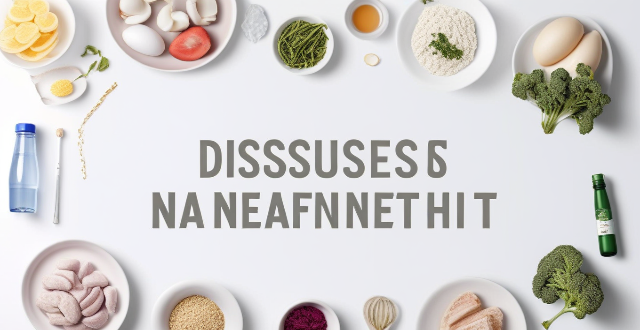
How can health management apps be used to support weight loss goals and promote healthy habits ?
The text discusses the role of health management apps in supporting weight loss goals and promoting healthy habits. It highlights three key features: tracking progress, making informed decisions, and developing healthy habits. The apps offer real-time data on calorie intake, exercise activity, body measurements, and provide information about diet and exercise routines. They also promote healthy habits beyond weight loss, such as drinking water, taking breaks from sitting, meditation, and sleep tracking. Overall, these apps provide users with tools to achieve their desired outcomes and maintain a balanced lifestyle.

What are the most important factors to consider when purchasing insurance ?
When purchasing insurance, important factors to consider include the type of coverage needed, deductibles, premium costs, insurer reputation, and policy terms and conditions. It's important to choose a policy that provides adequate coverage for your specific situation while also considering cost and provider reputation.

What are some healthy and quick breakfast options that can be prepared ahead of time ?
Overnight oats, smoothie bags, muffin tin egg cups, granola bars, yogurt parfaits, and baked sweet potatoes are healthy breakfast options that can be prepared ahead of time. These meal-prepped breakfasts offer benefits such as convenience, versatility, nutrient density, and customizability based on personal preferences. Tips for successful meal prep include planning ahead, batch cooking, proper storage, and staying organized. Incorporating these options into your routine ensures a healthy and satisfying start to the day while saving time in the mornings.

How can I optimize storage space on my iPhone without deleting important files ?
Managing storage space on your iPhone is crucial for maintaining its performance and ensuring that you have enough room for new apps, photos, and other files. However, deleting important files is not always the best solution. In this guide, we will explore some effective ways to optimize storage space on your iPhone without compromising your important data. Clearing app cache can free up storage space without affecting your important files. Reviewing large files such as old videos or music tracks and deleting the ones you don't need can also help free up space. Optimizing photo storage by selecting "Optimize iPhone Storage" in the Photos settings can save space without deleting any important memories. Managing messages by selecting a shorter duration for keeping messages can free up space without affecting recent conversations. Offloading unused apps can help free up space without deleting any important data associated with those apps. By implementing these strategies, you can ensure that your iPhone runs smoothly and has enough space for new content while keeping your important data safe and accessible.

Can sports supplements replace a healthy diet ?
Sports supplements can enhance performance and provide targeted nutrients, but cannot replace a healthy diet. Whole foods offer complete nutrition necessary for overall health. Supplements may cause side effects and are expensive. Prioritize a well-balanced diet and use supplements judiciously to support specific goals.

What are some common mistakes people make after intense exercise
Ignoring proper nutrition, not stretching, overtraining, drinking too much water and skipping breakfast are all common mistakes people make after intense exercise. It's important to replenish your body with nutrients it needs to recover and repair itself, stretch to prevent muscle soreness and stiffness, give your body enough rest and recovery time between workouts, drink enough water but not too much, and eat a healthy breakfast to refuel your body.

What are some healthy options for quick meals ?
When it comes to quick meals, choosing healthy options is important. There are many nutritious and fast meal ideas available, including salads like grilled chicken or quinoa salads, sandwiches with whole grain bread and veggies, stir-fries with vegetables and protein, and smoothies for a quick snack or meal. These options provide both speed and nutrition.
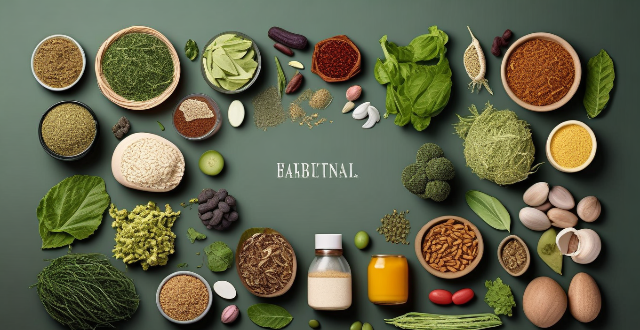
What role does protein play in a healthy diet ?
Protein is an essential nutrient that plays a crucial role in maintaining a healthy diet. It contributes to tissue growth and repair, enzyme and hormone production, immune system function, fluid balance, and energy provision. Consuming a variety of protein sources is important to ensure all necessary amino acids are obtained.
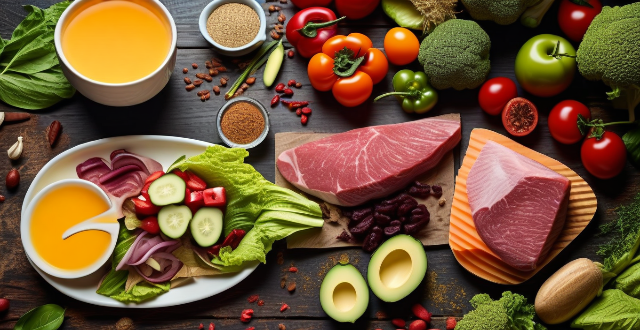
How can women maintain a healthy weight through diet ?
Women can maintain a healthy weight through diet by eating balanced meals, practicing portion control, sticking to regular meal times, limiting processed foods, staying hydrated, and being mindful of their eating habits.
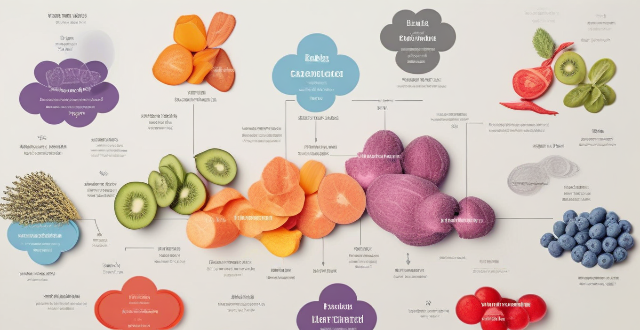
What kind of foods should I eat to aid in muscle recovery
Eating a balanced diet that includes carbohydrates, protein, healthy fats, water, and vitamins and minerals is essential for muscle recovery after exercise. Complex carbohydrates provide energy for muscles during recovery, while protein helps repair and grow them. Healthy fats support overall health and reduce inflammation. Drinking enough water flushes out toxins and maintains a healthy fluid balance in the muscles. Vitamins and minerals, such as vitamin C, vitamin D, and iron, are also important for muscle function and recovery.
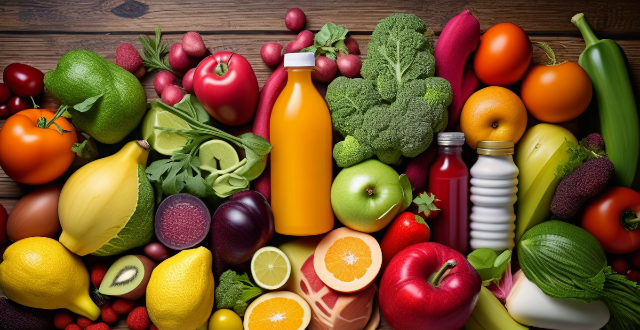
Can certain foods help reduce inflammation in athletes
Certain foods can help reduce inflammation in athletes. These include anti-inflammatory spices, fruits and vegetables, whole grains, healthy fats, and protein. It's also important to avoid processed foods, sugary drinks, and red meat. By eating a balanced diet full of healthy foods, athletes can reduce inflammation and improve their performance.